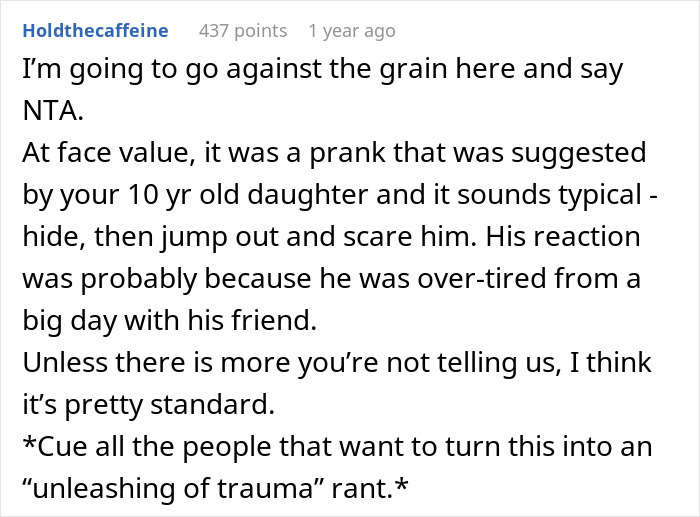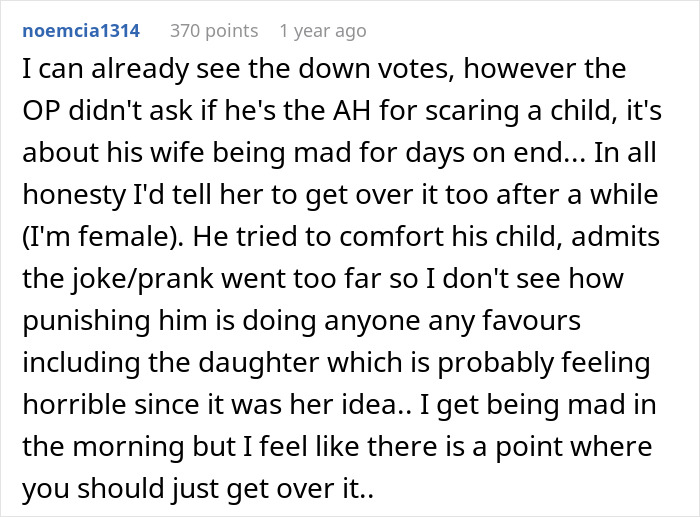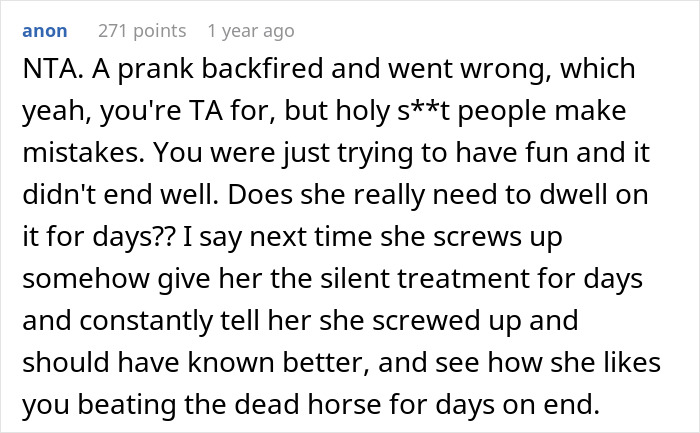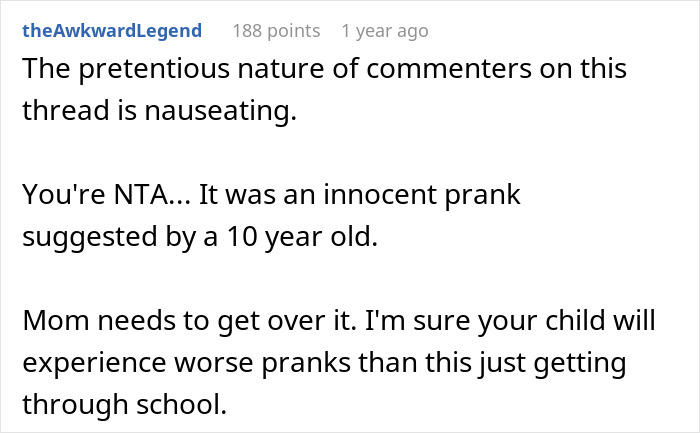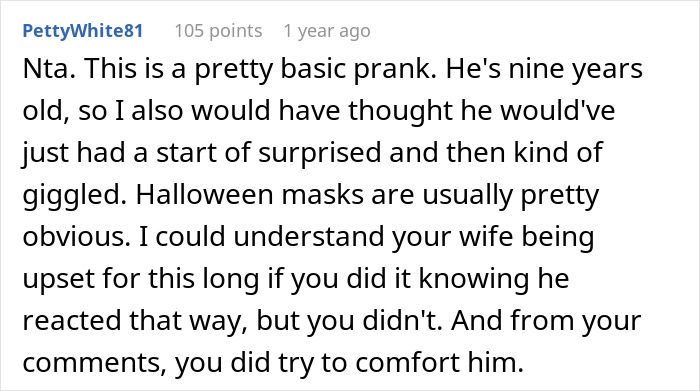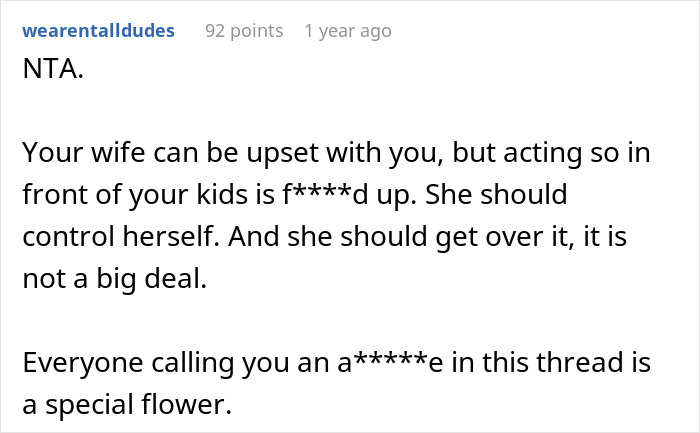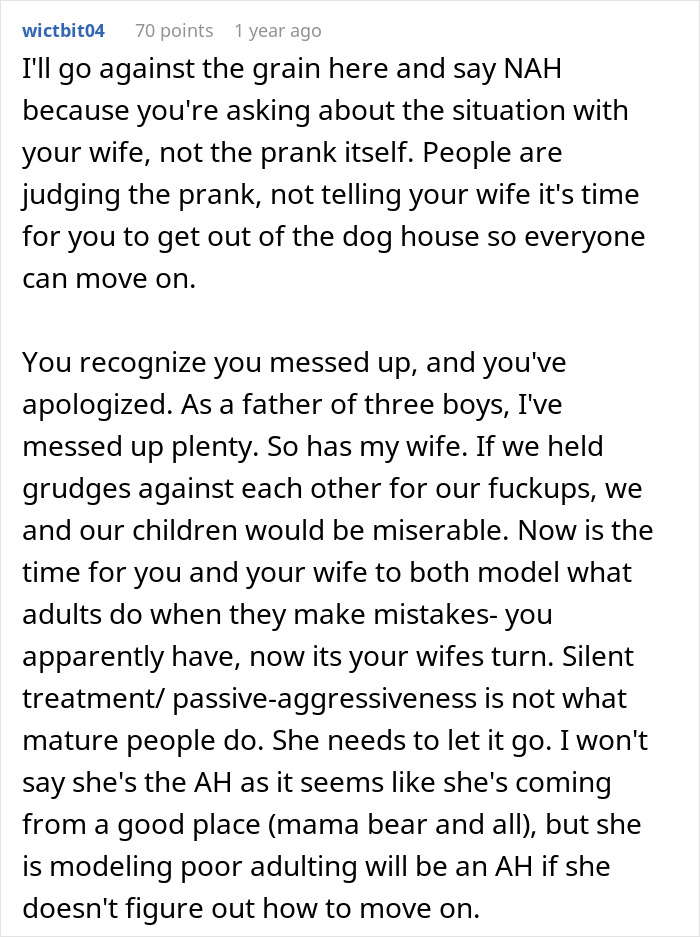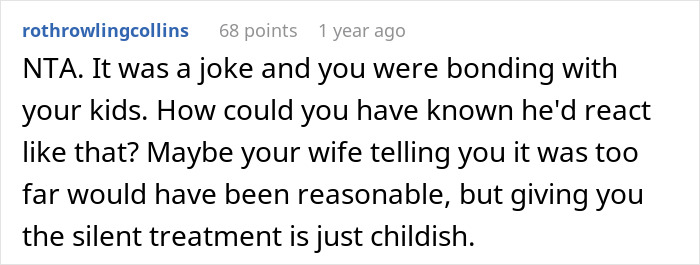Many people—young and old—absolutely hate practical jokes and jumpscares; typically for a reason, be it simply not finding them amusing or having a personal experience that was disturbing at best.
This redditor’s son might grow up to be one of said people. When his 10-year-old sister suggested pranking him, the dad did not realize how big of a shock it would be for the child and how big of a fight with his wife it would put him in.
Seeking to learn more about how pranks can affect children, Bored Panda turned to the founder and director of the Child’s Play, Learning, and Development Lab, a professor in the School of Education at the University of Delaware, Dr. Roberta Michnick Golinkoff, who was kind enough to answer a few of our questions.
Many people hate practical jokes, usually not without a reason

Image credits: choreograph / envatoelements (not the actual photo)
This dad got into a huge fight with his wife after pranking his 9-year-old son
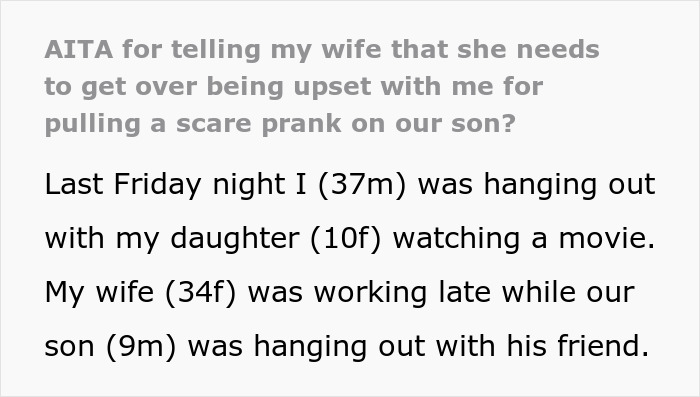
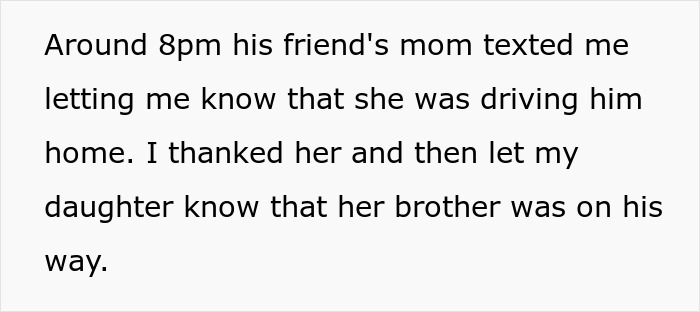
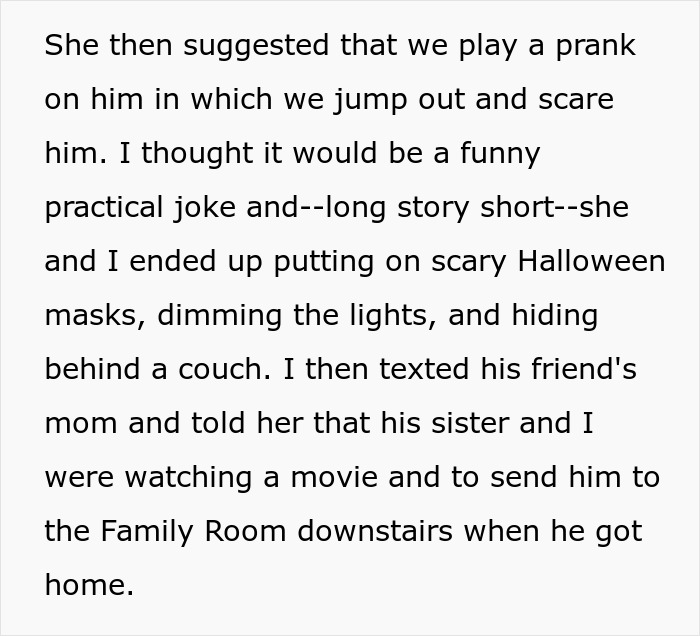

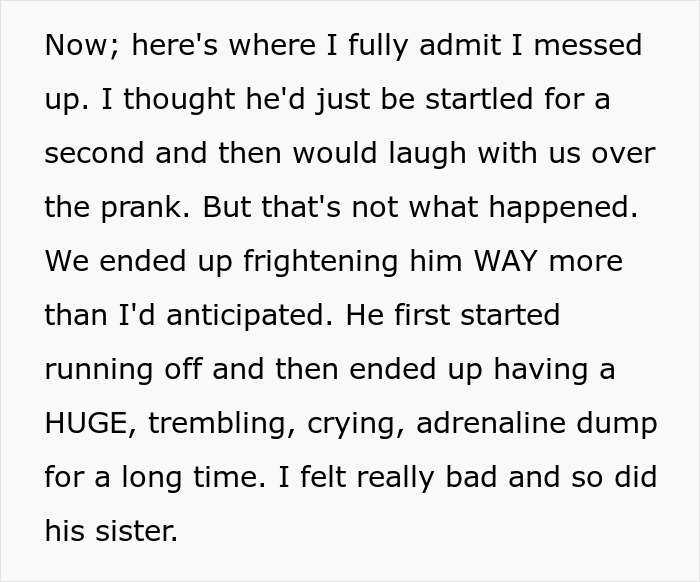
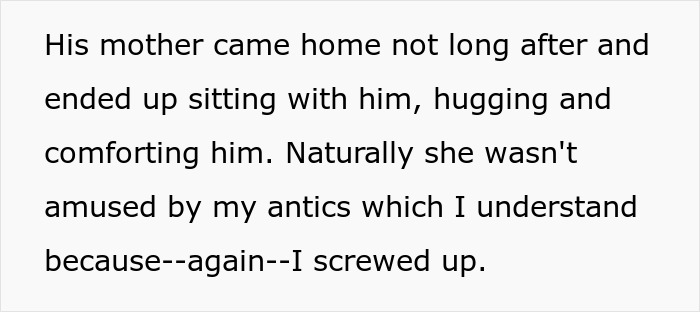
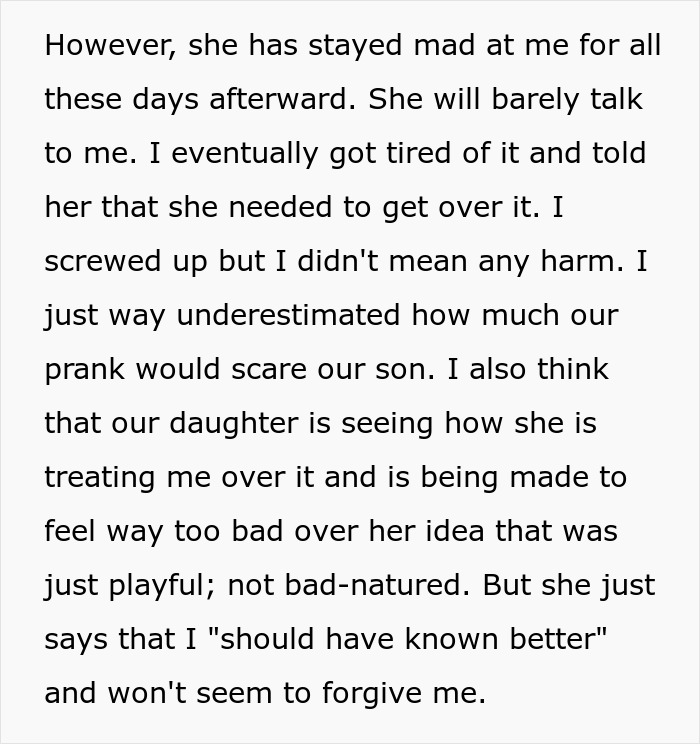
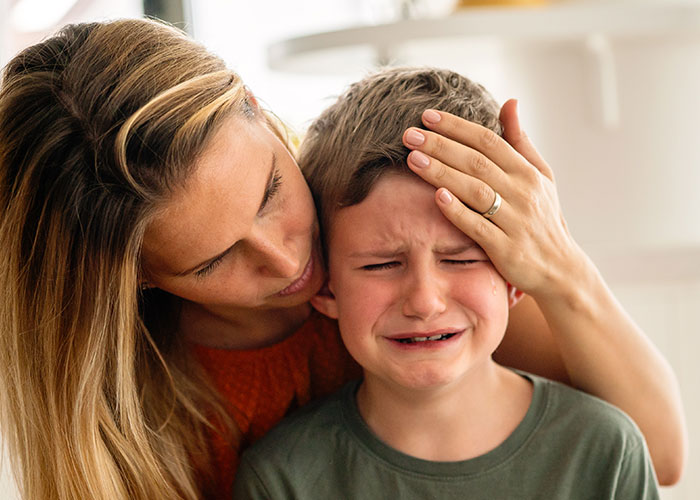
Image credits: nd3000 / envatoelements (not the actual photo)

Image credits: Small-Elephant9195
Parents should provide their children with support, not with a traumatizing event to recover from

Image credits: Vlada Karpovich / pexels (not the actual photo)
Discussing the occurrence with Bored Panda, Dr. Roberta Michnick Golinkoff emphasized that the child did not need to expend all his energy and emotion on recovering from the prank. “Parents are there to support their kids and not to increase their fears and trauma. I repeat: Parents are protectors not torturers. And anyone who says, ‘Oh, that kid will recover’ fails to see the depth of that child’s reaction and how he will be afraid for longer than he needs to be when he enters an empty or dark room,” the expert said.
Whether or not parents find pranking kids funny, the latter most likely don’t. “Not only are they not able to cognitively understand the humour, but they’re also the butt of a joke. And there’s a violation of trust,” developmental psychologist at York St John University and expert in how children develop humor, Paige Davis pointed out in a piece for BBC, discussing the mixed feelings pranks evoke in children.
Another expert, a child psychotherapist and spokesperson for the Association of Child Psychotherapists (ACP) in the UK, Rachel Melville-Thomas, added that pranking your offspring might not necessarily make them hyper-vigilant, but it can result in them thinking that the parent can do it again, because of the way our brains are wired.
Pranking children, especially seeking online fame, is needlessly cruel

Image credits: RDNE Stock project / pexels (not the actual photo)
Children losing trust in adults or being frightened they might scare them again are arguably two of the main reasons some individuals would never consider pranking kids. A survey on potential April Fool’s targets found that more than half of pranksters—56% to be exact—would never joke around at the expense of a young child. Unfortunately, some people would; and to make matters worse, they might do it “for the likes”.
“My sense is that parents prank on just what they know will trigger their children. If that sounds cruel and heartless, it is because it is,” Dr. Michnick Golinkoff said, adding that pranking kids has apparently become a new trend and it is awful.
“Before you prank a child, consider whether that is the best way to generate a few laughs,” the expert suggested. “Posting the child’s reaction on social media should be prohibited because I think in some cases, this is the parent’s motivation in hopes that it will go viral. Please, no. Please think about how you would have felt as a child to have the rug pulled out from under you.”
Dr. Michnick Golinkoff continued to point out that there’s nothing wrong with lightly teasing your child—only if not in a cruel way!— or using humor with them. But, according to her, people who care about kids should recognize that pranking does not come from a caring place; which is arguably why quite a few netizens in the comments criticized the OP for his behavior.
Quite a few netizens believed the dad was in the wrong here
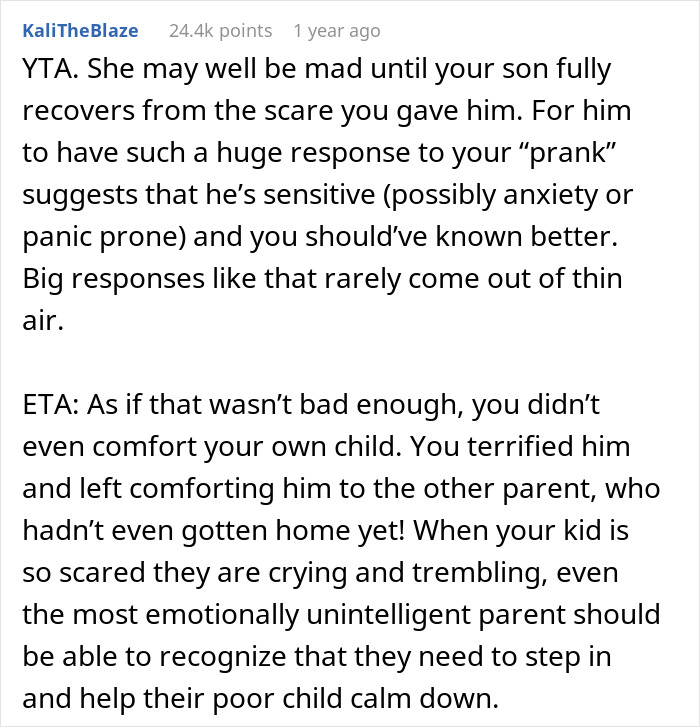
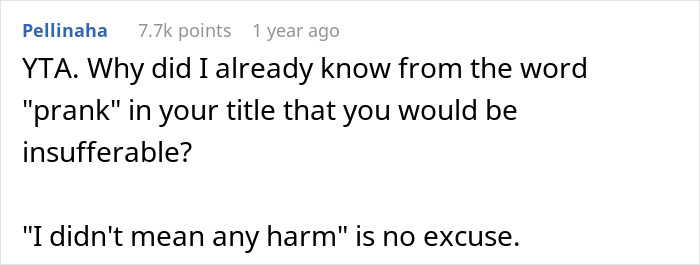
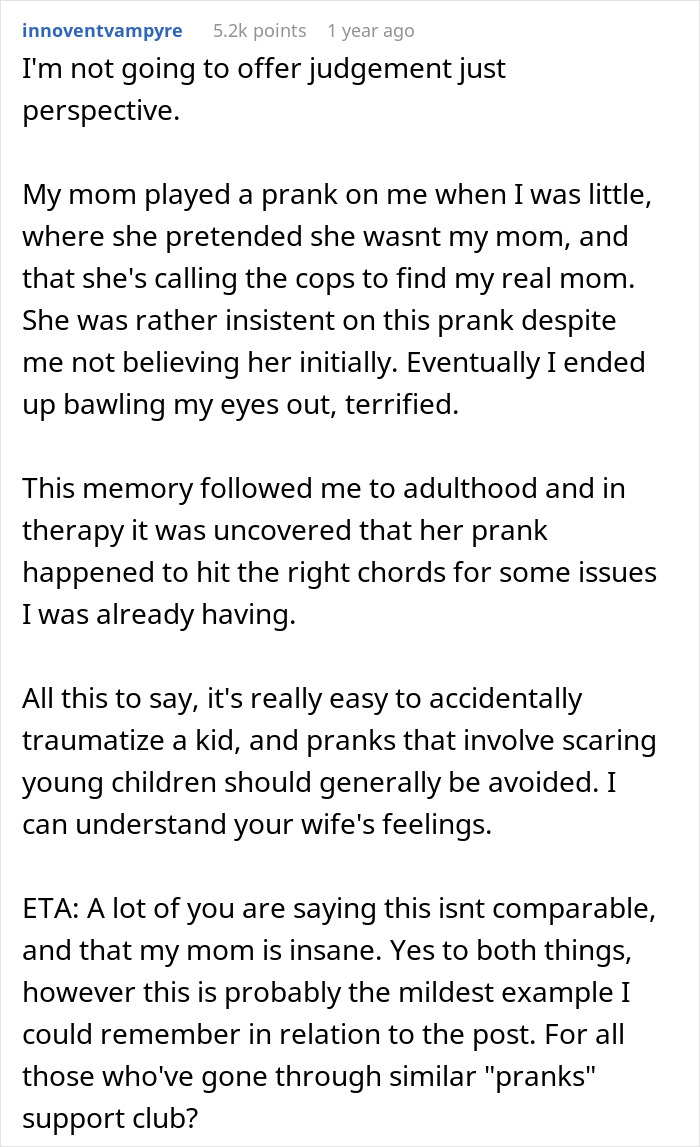
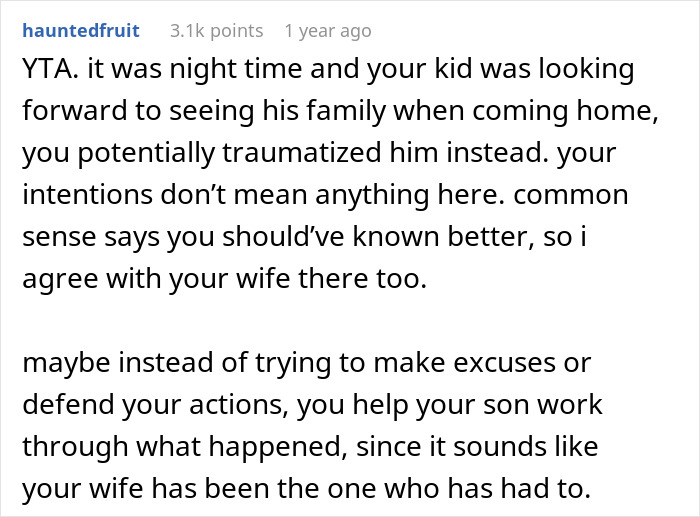
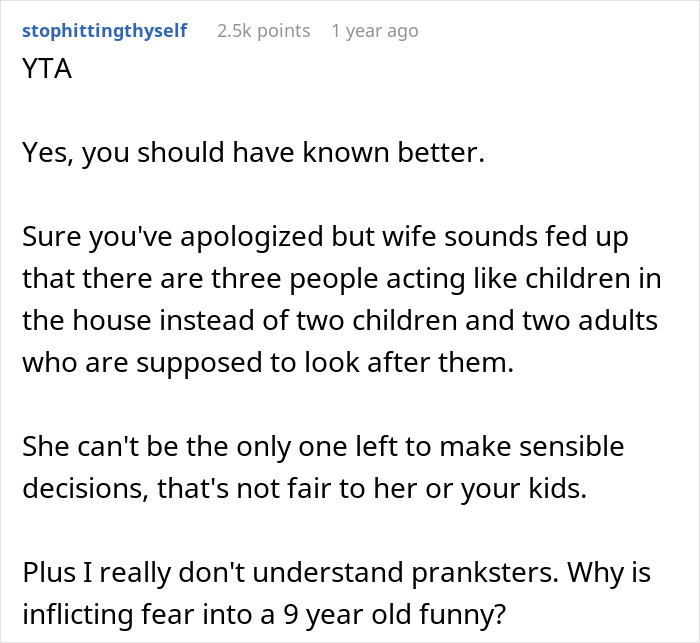
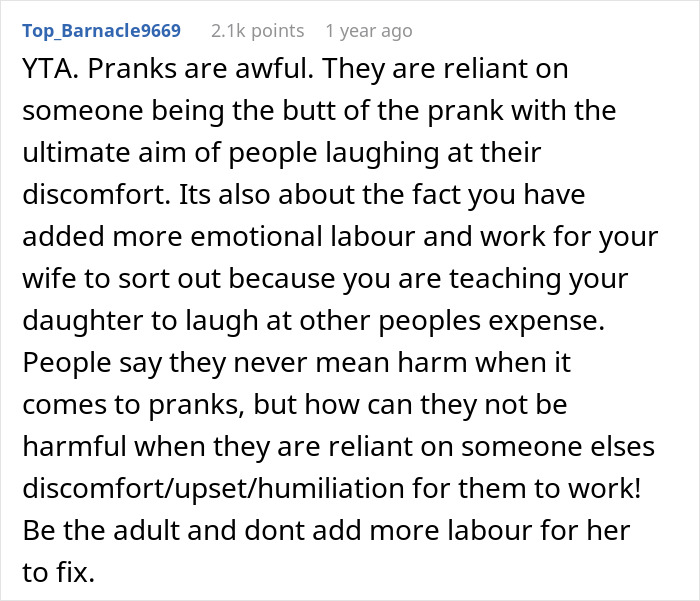
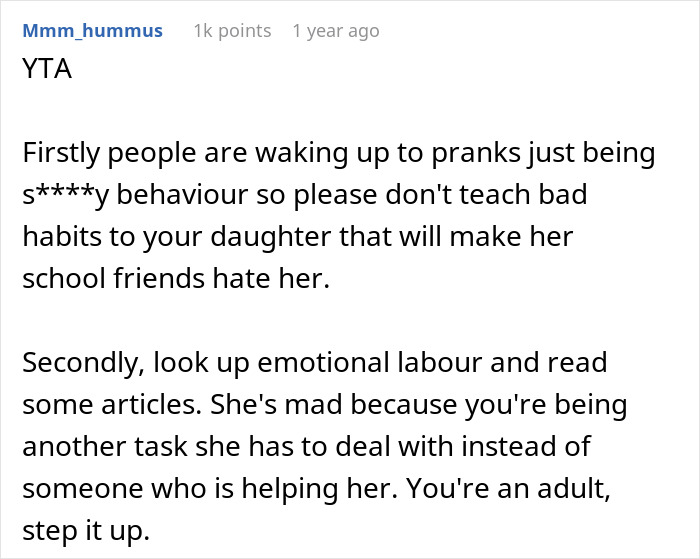
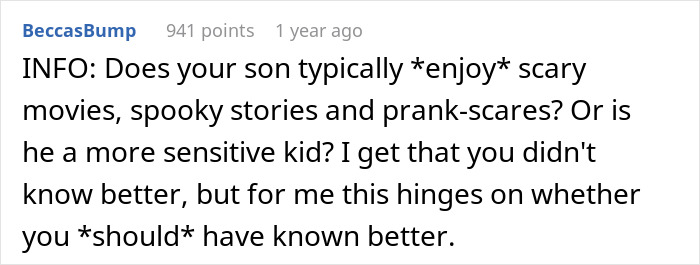
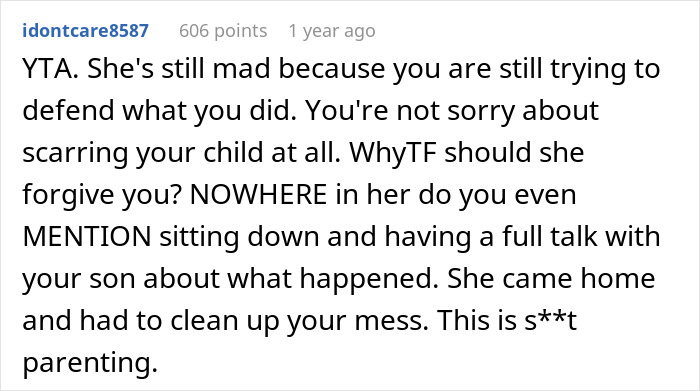
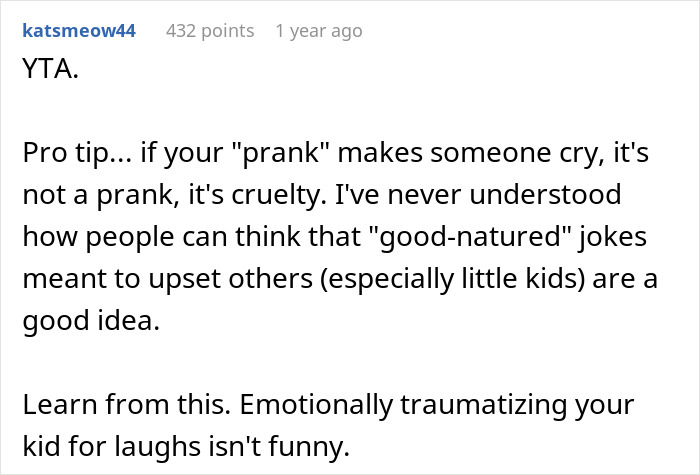



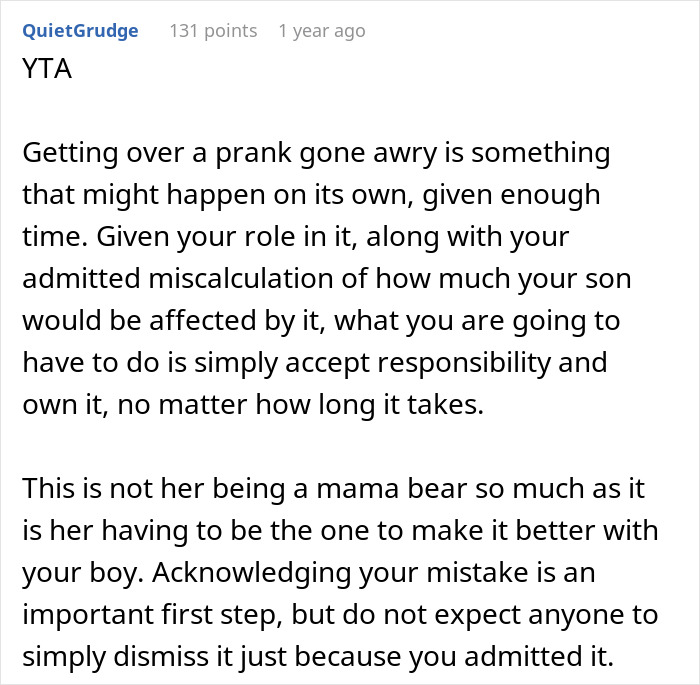
Some people, however, shared a different opinion
